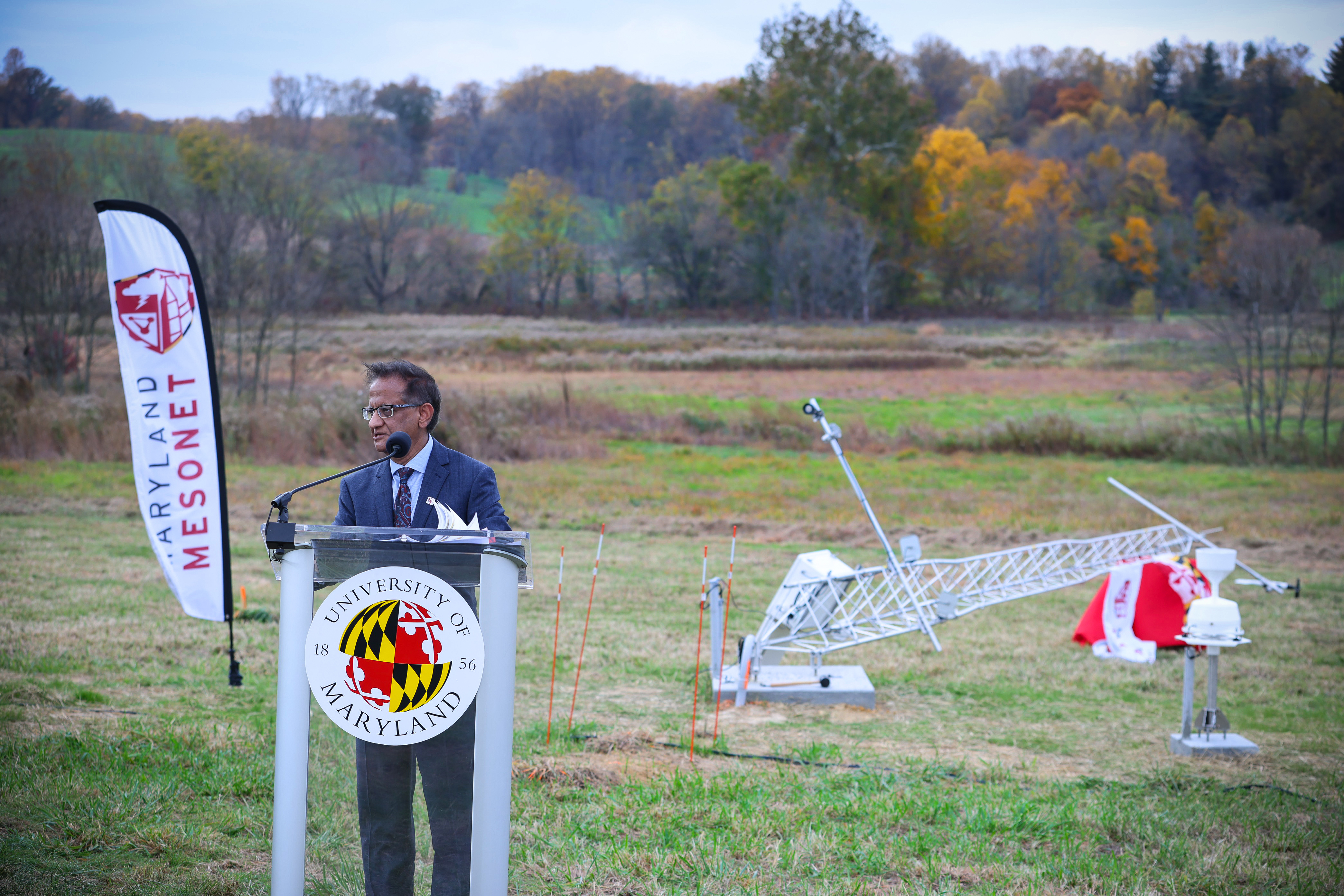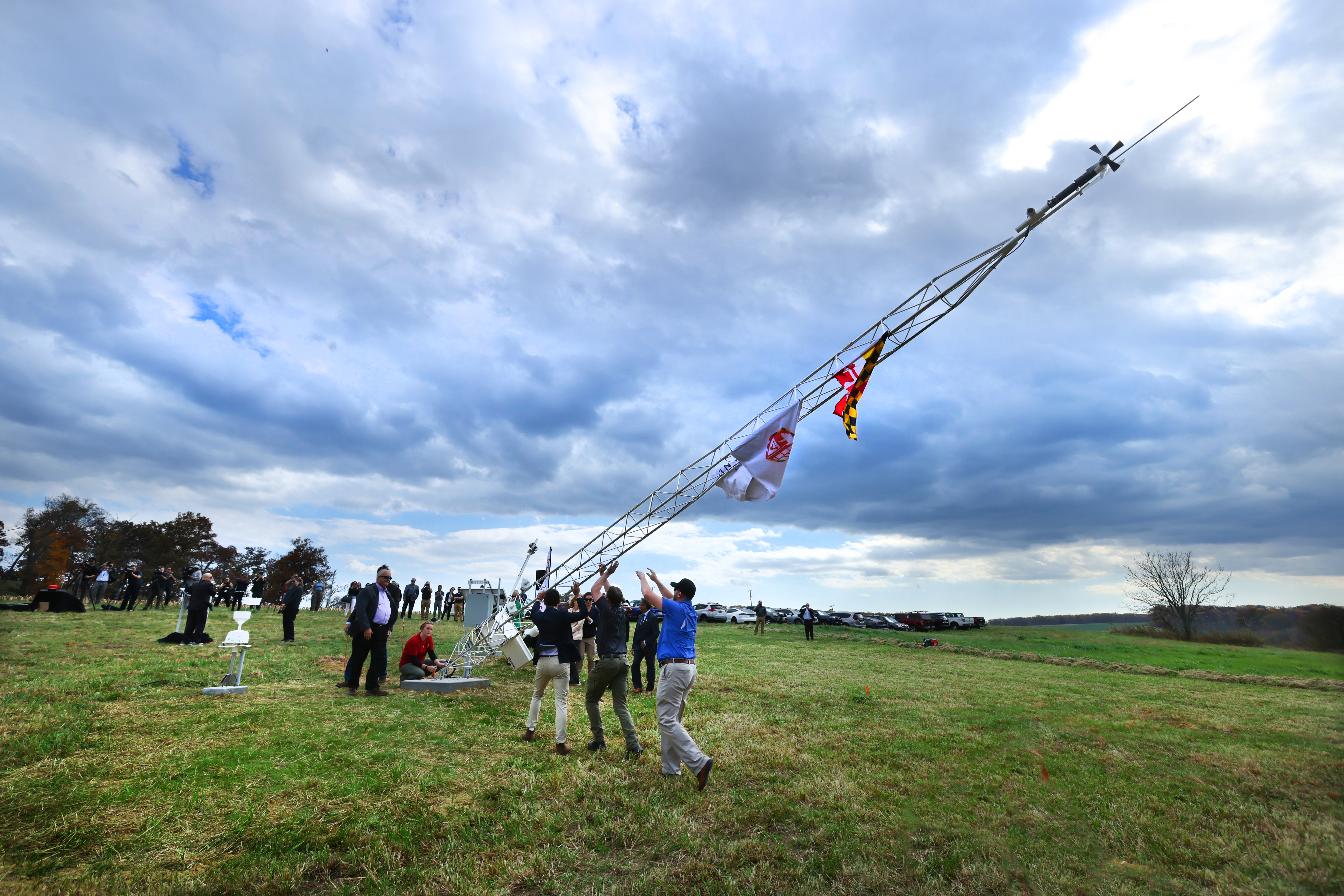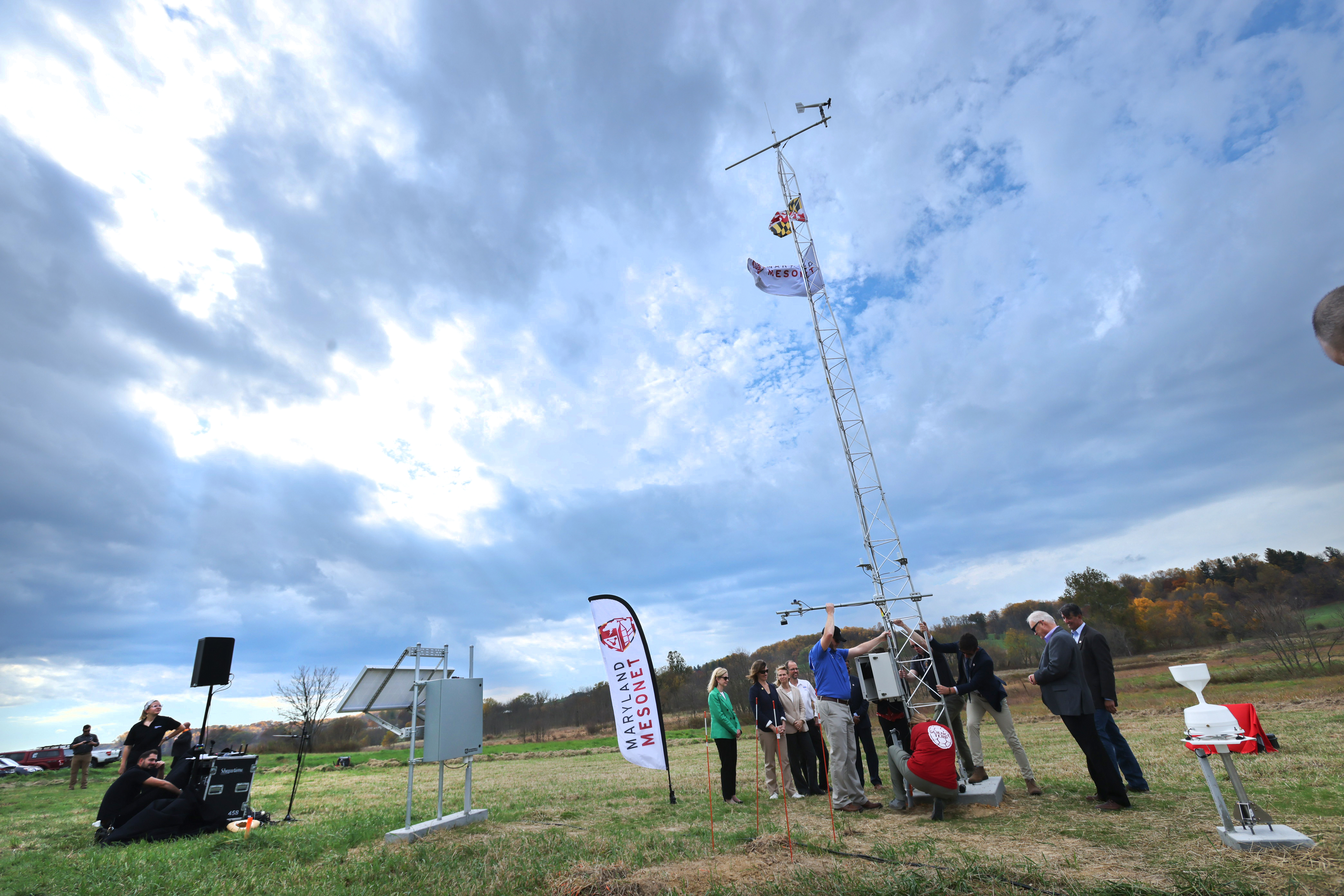Maryland Celebrates Unveiling of its First Mesonet Tower
University of Maryland and Maryland Department of Emergency Management partner to advance weather prediction and public safety
The Maryland Department of Emergency Management (MDEM) and the University of Maryland today proudly unveiled the first of more than 70 Maryland Mesonet towers. The historic event marked a significant step forward in advancing weather prediction and ensuring the safety of Maryland's residents and visitors.
The Maryland Mesonet is a groundbreaking initiative designed to create a world-class atmospheric monitoring system. It delivers real-time data that plays a pivotal role in improving emergency management and supporting various sectors, including agriculture, transportation, and economic activities.
"The Mesonet will protect Marylanders from extreme wind and water harm by advancing emergency preparedness and the accuracy of regional weather forecasts," said Maryland Mesonet Director Sumant Nigam, a professor in UMD's Department of Atmospheric and Oceanic Science and Earth System Science Interdisciplinary Center. "With an active State Climatologist Office and a fully deployed Mesonet soon, the University of Maryland will provide Marylanders insightful information on severe weather and climate variability and change that will benefit the state’s agriculture, tourism and transportation sectors, among others."
The press event, held October 30, 2023, at the University of Maryland's Central Maryland Research and Education Center in Clarksville, Maryland, celebrated a remarkable collaboration and a promising future for weather-related emergency management.
“Our researchers have made significant progress in just one year toward building out the Maryland Mesonet, and we've reached a milestone today as we turn on the first tower. I continue to believe that the Maryland Mesonet will be a force multiplier in weather-related safety and emergency management in the state of Maryland,” said Amitabh Varshney, dean of UMD’s College of Computer, Mathematical, and Natural Sciences.
The unveiling ceremony featured prominent speakers, including elected officials, who offered their valuable insights and enthusiasm for this transformative project. Maryland State Senators Guy Guzzone (District 13) and Katie Fry Hester (District 9), National Weather Service (NWS) Warning Coordination Meteorologist Chris Strong and UMD Provost and Senior Vice President Jennifer King Rice spoke at the event. Maryland State Delegates Natalie Zeigler (District 9A) and Courtney Watson (District 9B) also attended the event.
"The unveiling of the first Maryland Mesonet Tower signifies a significant stride towards enhancing public safety and protecting Marylanders. The improved accuracy and lead time for severe weather warnings will be one of the most important benefits for our people," said MDEM Secretary Russ Strickland. "This groundbreaking initiative will revolutionize weather prediction, and I'm proud of the partnership between MDEM and the University of Maryland."
The Maryland Mesonet is strategically positioned to impact all regions of the State, particularly underserved communities vulnerable to climate change and sea-level rise. The project supports the development of Mesonet-data-based applications for state and local agencies, NWS, Maryland's K-12 education, farmers, fishermen, water managers, air-quality monitors, wind and solar energy producers, transportation professionals and the media.
“The University of Maryland is always looking for ways to serve our state, and the Maryland Mesonet is a perfect example of the expertise we have to offer,” said UMD President Darryll J. Pines. “As Earth's climate undergoes accelerating changes, weather forecasting only gets tougher. Getting it right quickly is crucial to the safety of people in this region as well as farmers' ability to feed the world. This state-of-the-art system, coupled with our work with local, state and federal officials, makes our state a better place to live for all Marylanders."










